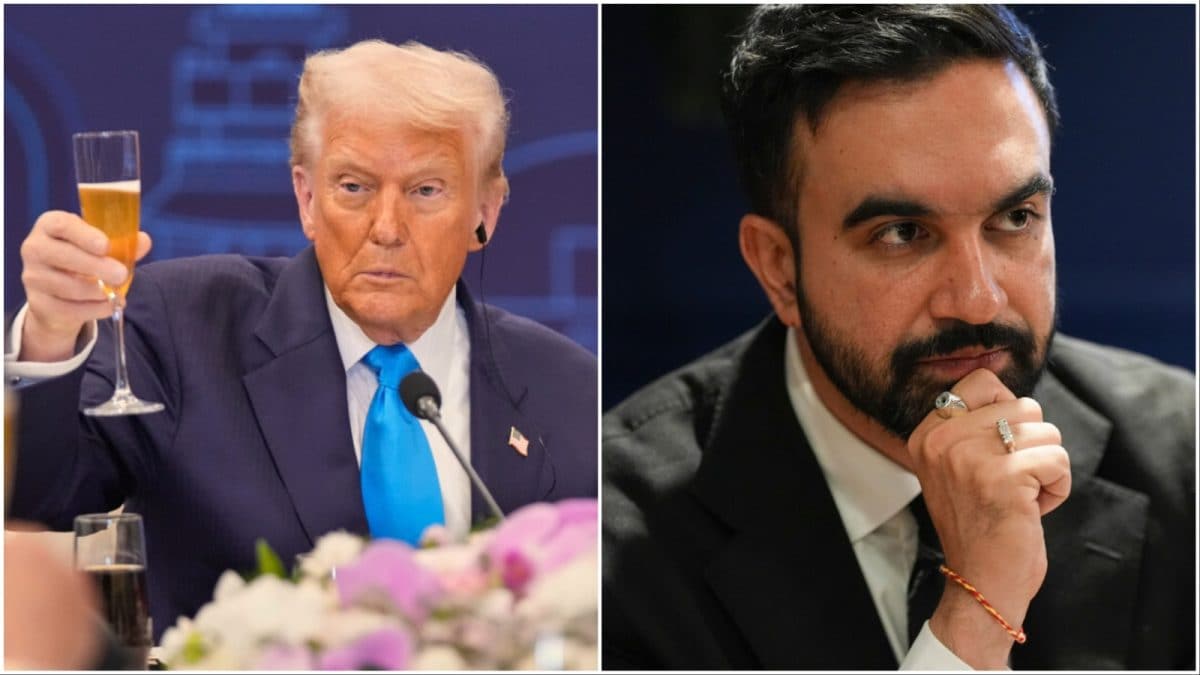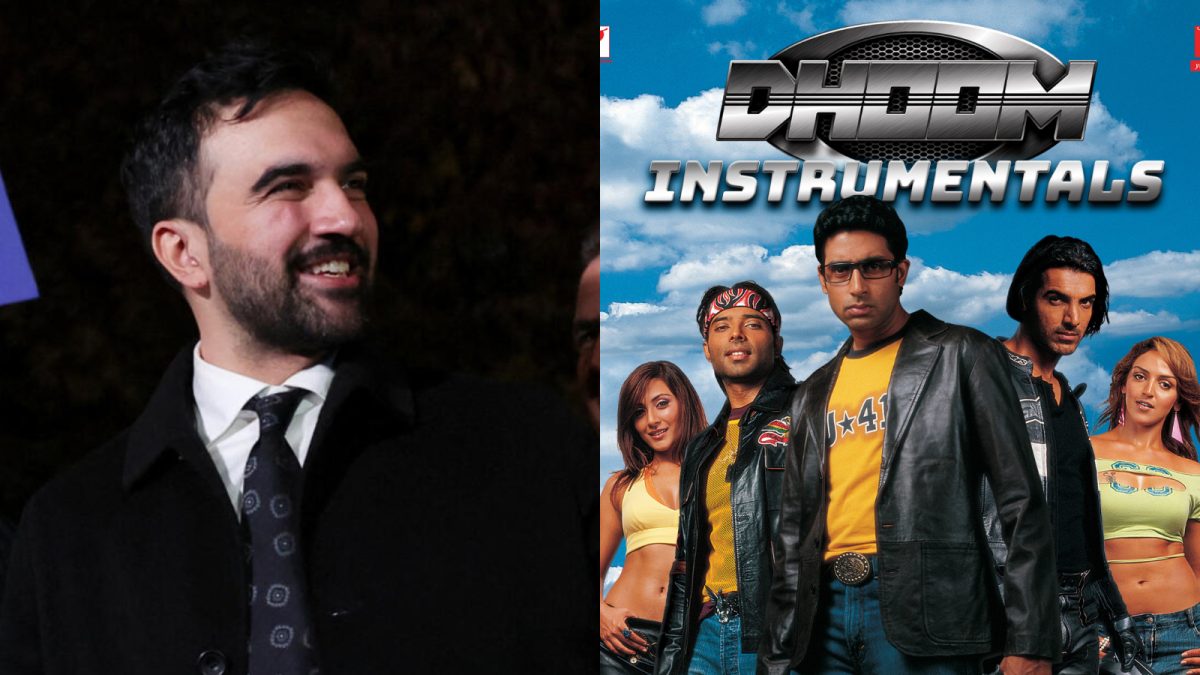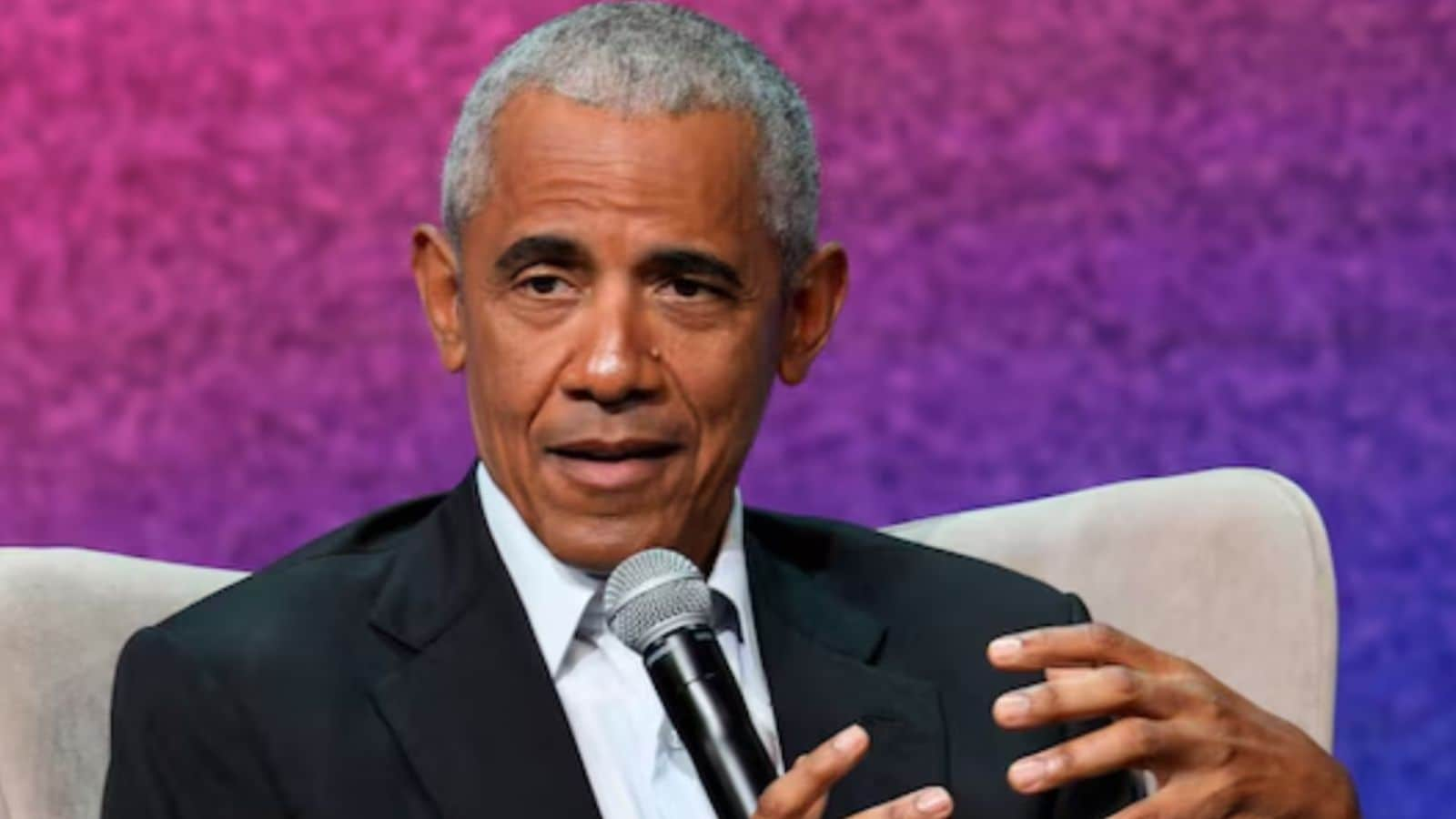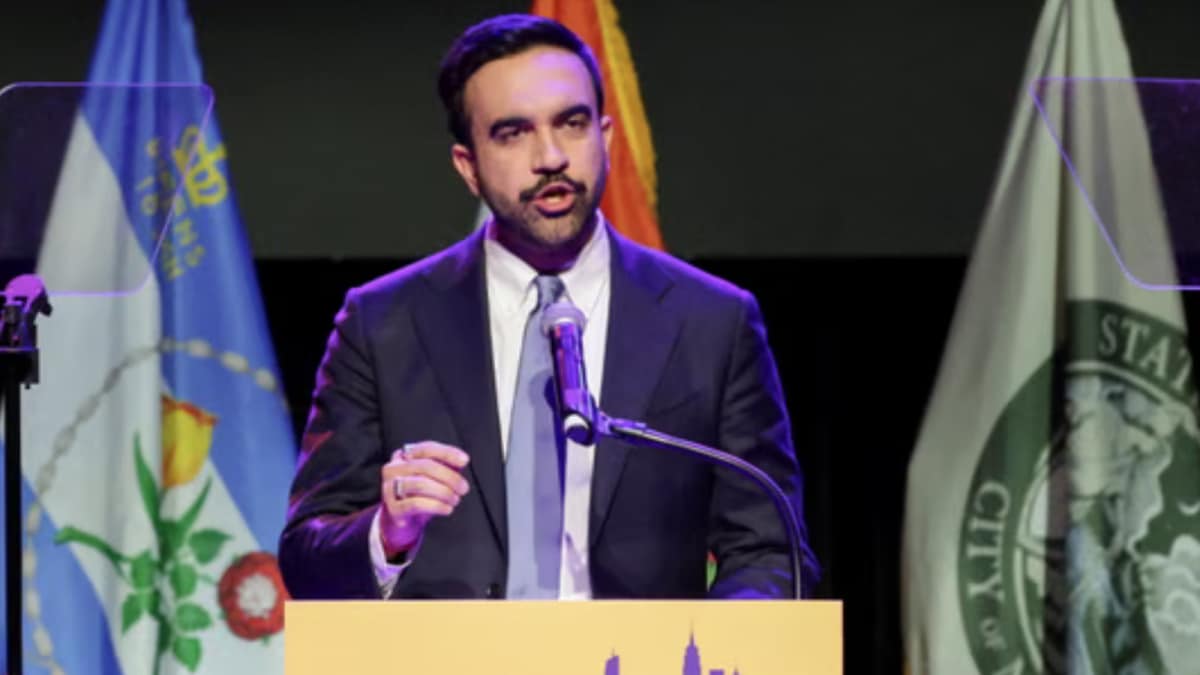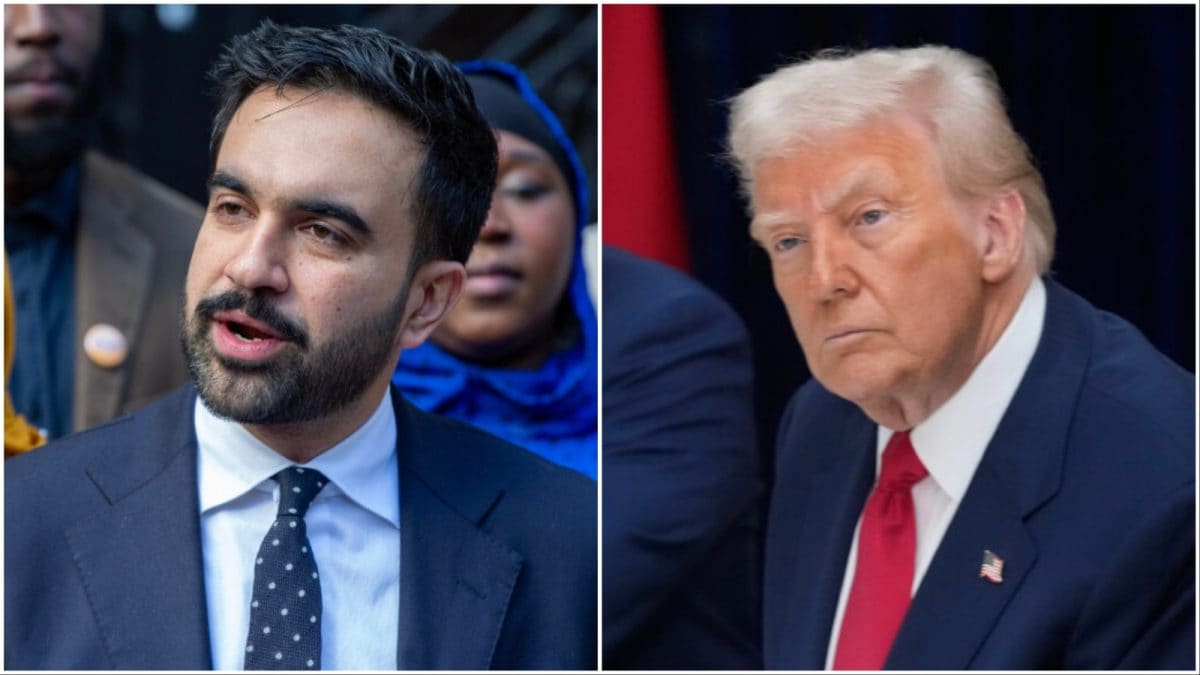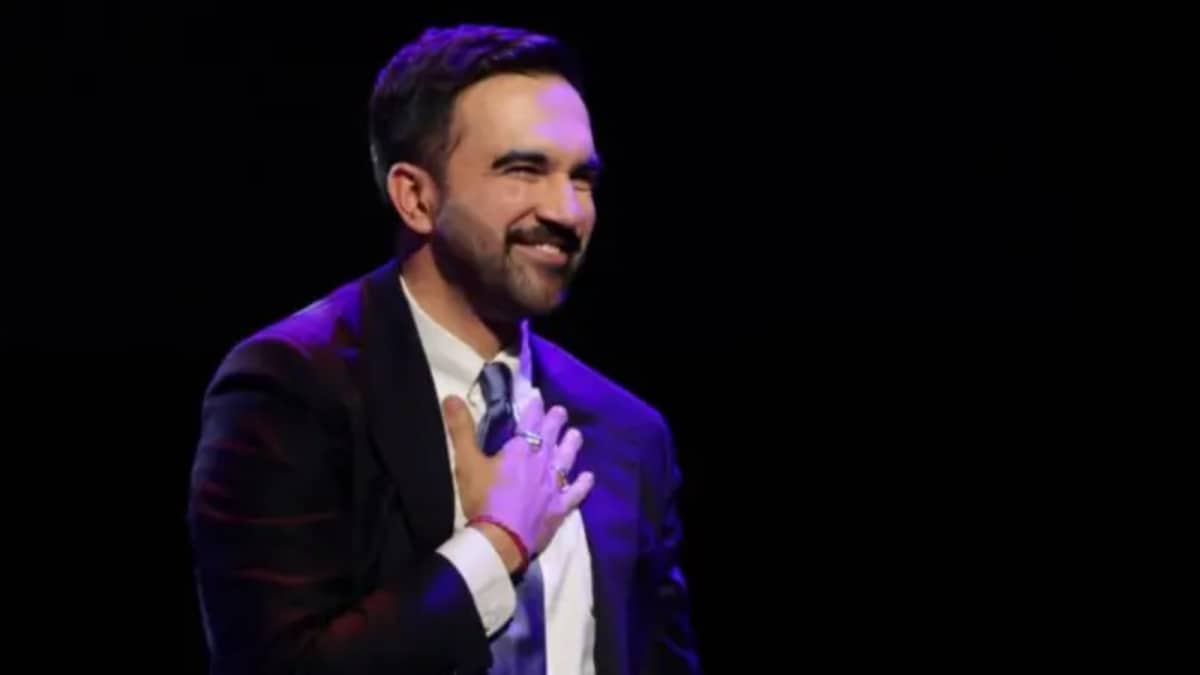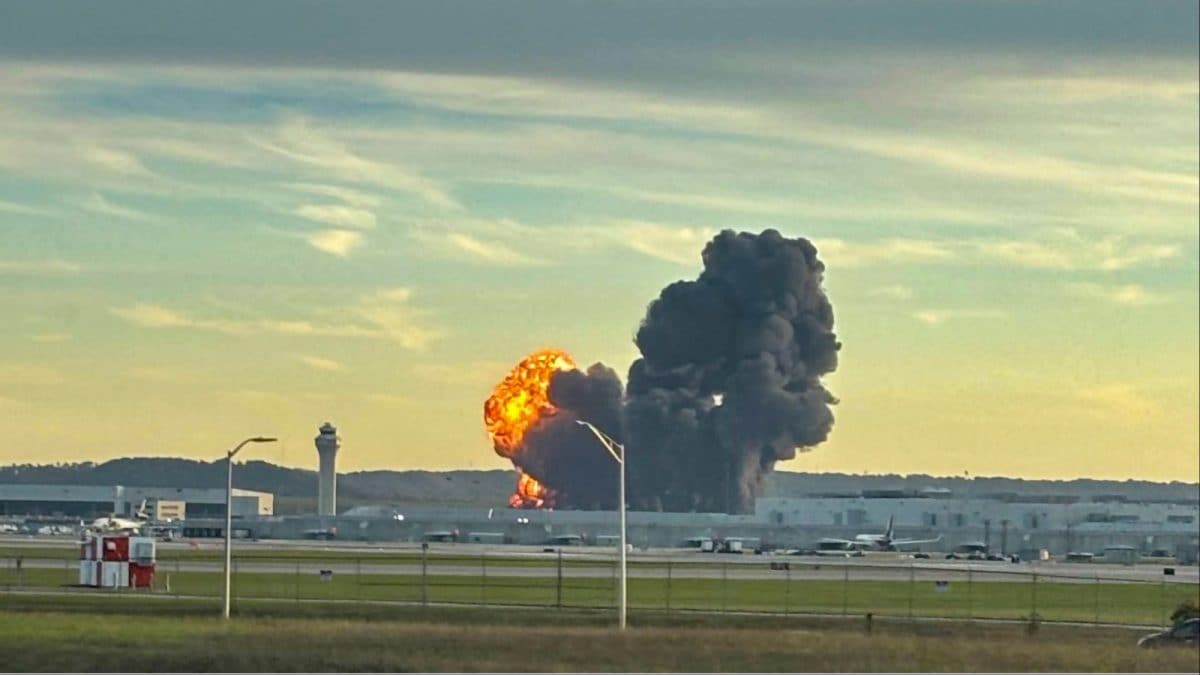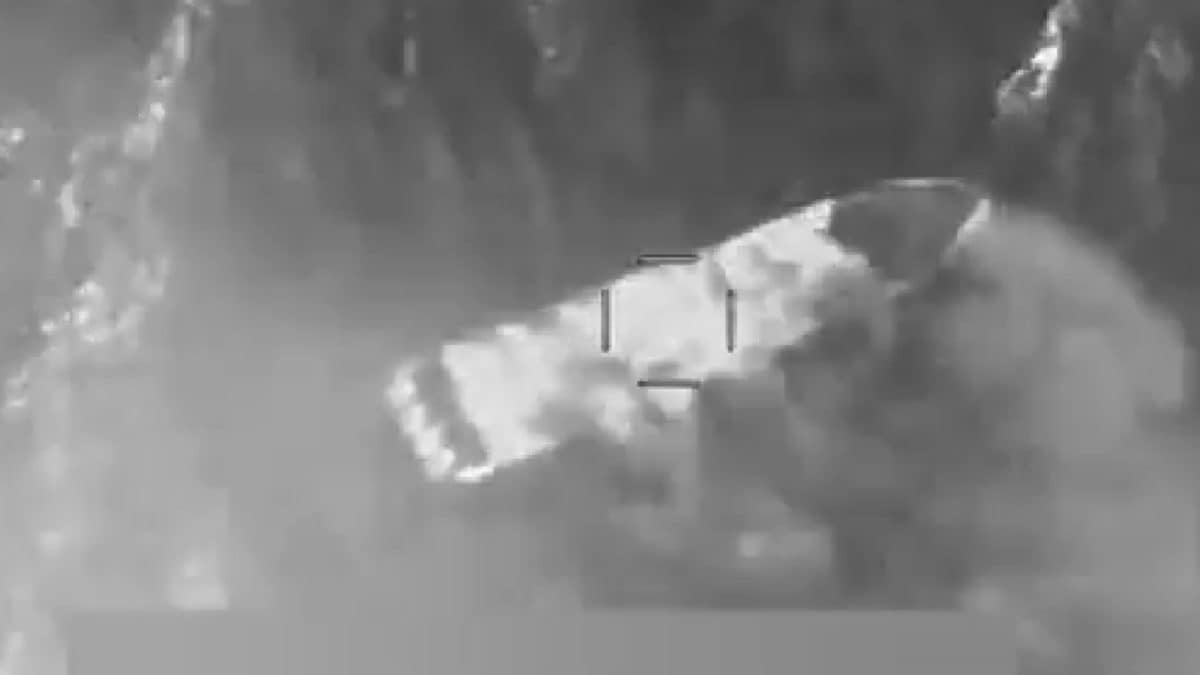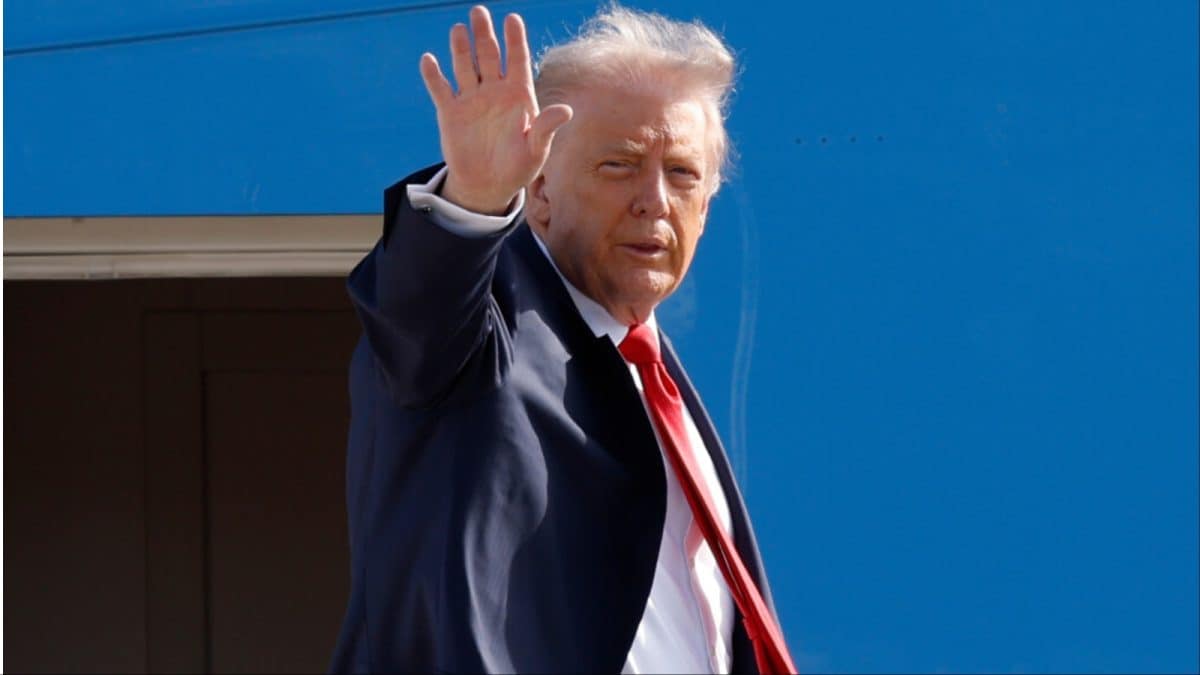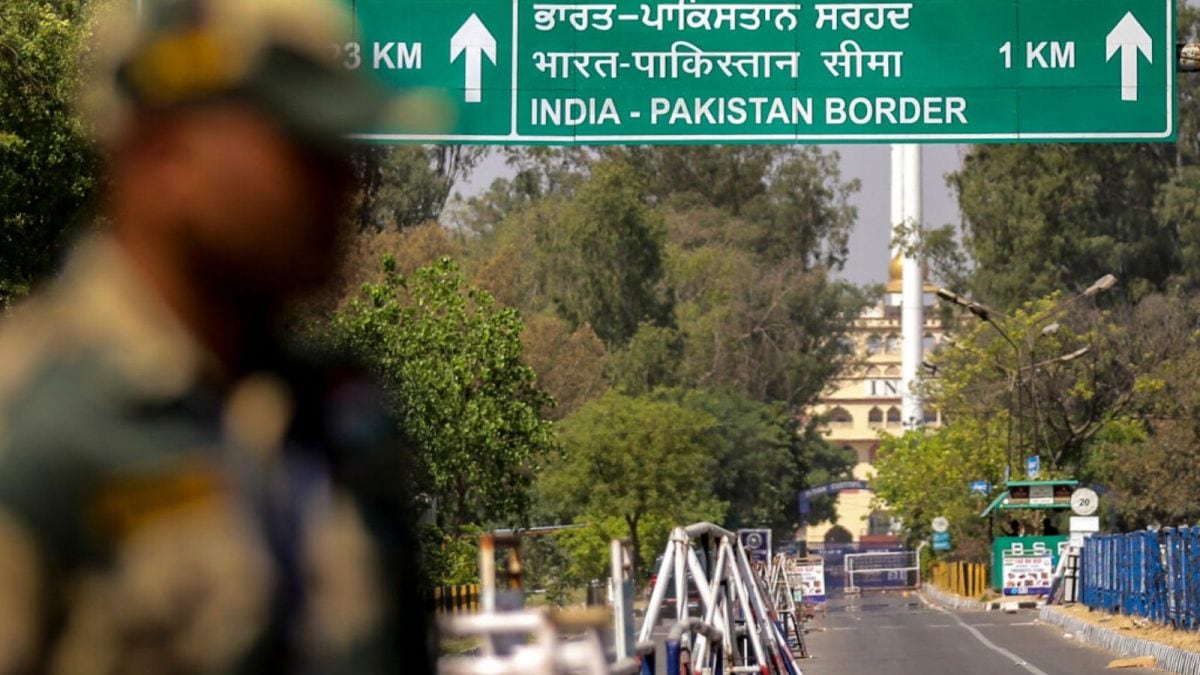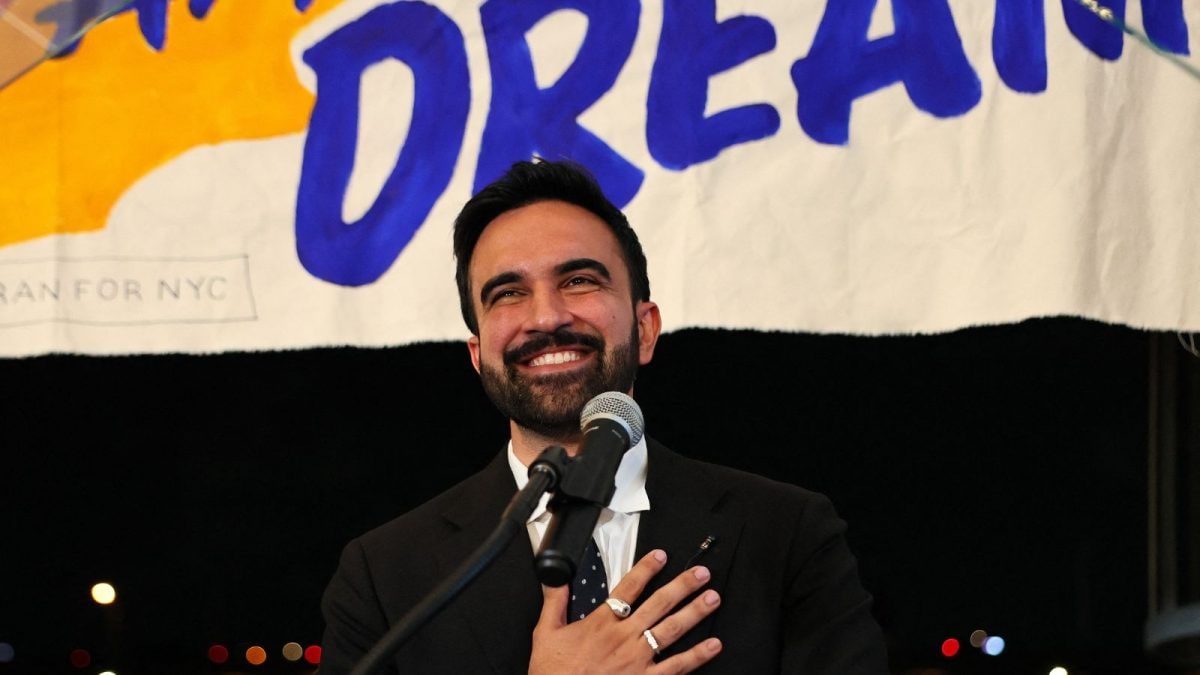Ukraine's Zelenskyy speaks at UN general assembly: weapons decide who survive
Ukraine’s Volodymyr Zelenskyy is speaking now.
He opens very strongly:
“Dear leaders, dear friends and all those who can become our friends because you want safety and peace just as much as we do today.
No one but ourselves can guarantee security. Only strong alliances, only strong partners and only our own weapons. The 21st century isn’t much different from the past. If a nation wants peace it still has to work on weapons. …
Not international law, not cooperation – but weapons decide who survives.”
He goes on:
“You know perfectly well, international law doesn’t doesn’t work fully unless you have powerful friends who are truly willing to stand up for it.
And even that doesn’t work without weapons.
It’s terrible, but without it, things will be even worse. There are no security guarantees except friends and weapons.”
Key events Show key events only Please turn on JavaScript to use this feature
If there are no real security guarantees, will any place on Earth remain safe?, Zelenskyy asks
Zelenskyy poses a dramatic question to the leaders as he says:
“We are now living through the most destructive arms race in human history, because this time it includes artificial intelligence.
And if there are no real security guarantees except friends and weapons, and if the world can’t even respond to all threats, and if there is no strong platform for international security, will there be any place left on Earth that’s still safe for people?”
Collapse of international law and order leads to rise of weapons, Zelenskyy says
Returning to a broader international theme, Zelenskyy refers the situation in Afghanistan and “cartels in some Latin America countries that are more powerful than the government.”
“This is all about collapse of international law and the weakness of the international institutions, and so it’s about the rise of weapons,” he says.
He gives specific examples by paying tribute to US president Donald Trump saying only “God saved him from a murder attempt during the campaign,” and notes the recent killing of Charlie Kirk in the US, and of Ukrainian woman Iryna Zarutska killed in the US.
He then remarks on the growing importance of drones, saying “war tech doesn’t care about geography any more” as he references the recent closure of Copenhagen airport because of drones.
“Authorities couldn’t even say what kind of drones they were, who sent them or from where,” he says.
The world moves too slowly to protect itself, and weapons move fast.
On Russia, Zelenskyy says:
“As Russia’s war against my country goes on, people are still dying every week, yet there is no ceasefire because Russia refuses.
Russia abducted thousands of Ukrainian children, and we have brought some of them back. And I thank, I thank everyone who’s helped. But how long will it take to bring all of them whom childhood slips away faster than adults are able to help?”
He says that he warned about the risk of radiation disasted as a result of Russia’s occupation of Zaporizhzhya power plant last year, and “nothing has changed” since.
“Russia hasn’t stopped shelling, even in areas near a nuclear facility. And international institutions are too weak, this madness continues,” he says.
Acknowledging recent incidents in Poland, Romania, and Estonia, he says that “even being part of a longstanding military alliance [Nato] doesn’t automatically mean you are safe.”
He also pays tribute to Moldova this “is defending itself again from Russia’s interference.”
He says:
“We have already lost Georgia in Europe. Human rights and the European nature of the state system are only shrinking there, and Georgia is dependent on Russia, and for many, many years Belarus has also been moving toward dependence on Russia.
Europe cannot afford to lose Moldova too.”
He says “it’s important to remember how the world once ignored the need to help Georgia after Russia’s attack, how the moment was missed with Belarus,” as he stresses: “Moldova must not be lost.”
Zelenskyy says there is “no single international institution that can truly stop” any aggression, pointing to Palestine, Somalia, and Sudan.
“What can Sudan or Somalia or Palestine or any other people living through war really expect from the UN or the global system for decades, [but] just statements and statements,” he says, with a reference to Gaza.
He adds:
“Even now, Syria, after all the changes, still has to appeal to the world to ease the sanctions that are choking its economy. It has to ask and wait. Syria deserves strongest support from the international community.”
He then turns to Russian invasion of Ukraine.
Ukraine's Zelenskyy speaks at UN general assembly: weapons decide who survive
Ukraine’s Volodymyr Zelenskyy is speaking now.
He opens very strongly:
“Dear leaders, dear friends and all those who can become our friends because you want safety and peace just as much as we do today.
No one but ourselves can guarantee security. Only strong alliances, only strong partners and only our own weapons. The 21st century isn’t much different from the past. If a nation wants peace it still has to work on weapons. …
Not international law, not cooperation – but weapons decide who survives.”
He goes on:
“You know perfectly well, international law doesn’t doesn’t work fully unless you have powerful friends who are truly willing to stand up for it.
And even that doesn’t work without weapons.
It’s terrible, but without it, things will be even worse. There are no security guarantees except friends and weapons.”
Spain's Felipe praises EU deal with UK on Gibraltar
In comments that are likely to get some attention in the UK, Spain’s King Felipe also mentions Gibraltar, in the context of the EU’s agreement on future relations with the UK.
“I think it’s important to recall that on 11 June this year, we launched a definitive political agreement regarding the key aspects of the future accord between the European Union and the United Kingdom.
This was a historic agreement that respects Spain’s position on sovereignty and jurisdiction over Gibraltar, which will bring confidence, legal certainty and stability to the lives of the populations of the Campo de Gibraltar [province] and Gibraltar itself.”
Wrapping up his speech, he also reiterates his commitment to the UN.
'Stop this massacre now,' Spain's king Felipe tells Israel on Gaza in passionate defence of rules-based order
Spain’s King Felipe mounts a passionate defence of the international rules-based order in his speech, warning that “a world without rules amounts to uncharted territory; … it’s returning to the middle ages.”
Already in one of the opening paragraphs, he acknowledges “the voices that continue to proclaim the end of multilateralism and the obsolescence and inefficacy of the United Nations” in what can be seen as an indirect rebuke to yesterday’s speech by US president Donald Trump.
He condemns Russia’s “unprovoked and unjustifiable aggression,” backing “all efforts aimed at achieving a just and lasting peace.”
But he focuses even more on the situation in the Middle East, as he says “we cannot remain silent or look away from the devastation of bombings,” and calls out “the countless civilian deaths, famine, starvation, the forced displacement of hundreds of thousands of people.”
He says “these are abhorrent acts that stand in stark contrast to everything that this forum represents, they offend human conscience and shame the entire international community.”
Noting Spain’s links with Sephardic Jews, he says:
“It is for this reason, and it is so difficult for us to understand that with and we are so pained by the actions of the Israeli government in Gaza.
We therefore cry out, we implore, we demand: stop this massacre now.
No more deaths in the name of a people that are so wise and ancient, who have suffered so greatly throughout history.”
He condemns “the heinous terrorism of Hamas,” and “recognise Israel’s right to self-defence,” but also demands full access to Gaza for humanitarian aid deliveries.
“The international community must shoulder its responsibility to achieve as soon as possible, a viable solution that would include the existence of two states,” he says.
Spain's King Felipe, Ukraine's Zelenskyy set to address UN general assembly
The UN general assembly is restarting its proceedings now, and we will hear from Ukraine’s Volodymyr Zelenskyy over the next hour.
But he is the second speaker, after the Spanish King Felipe VI, who is expected to take a strong line on Gaza.
I will monitor their speeches and bring you all the key lines here.
You can watch along here:
Trump’s change in tone is valuable to Ukraine – but more than words are needed

Dan Sabbagh
Defence and security editor
The change in Trump’s tone is worth something to Kyiv.
But if the US president were to be serious about a Ukrainian battlefield victory, it would require not just further economic sanctions, but a far greater provision of American weapons and probably direct military intervention on the part of the west as well.

Russia has been forced to retreat only during two periods since its full-scale invasion began in February 2022: in the spring of that year, when it was over-extended around Kyiv; and again in autumn 2022, when it faced a similar problem in Kherson and when defences were thinly held in the Kharkiv region before the Kremlin launched a mobilisation drive.
Critically, Ukraine failed with its counteroffensive in the summer of 2023. Western tanks, rockets and armoured vehicles were supplied but used poorly by Kyiv, spreading them out at multiple points along the front in attacks that failed to take account of Russian mines, trenches and other defences.
The gains amounted to six miles at best at one or two points on the front and have long since been eradicated by the slow, but remorseless Russian advance from Avdiivka to the gates of Pokrovsk in central Donetsk. Moscow has held the initiative since early 2024 and shows no sign of relinquishing it.
Map of UkraineUkraine itself has long since acknowledged that it cannot win back lands conquered by Russia through military means.
In February, Zelenskyy accepted that some or all of the territory occupied since 2014 would have to be returned to Ukraine by “diplomatic means” while other experts have talked about pursuing a highly militarised defensive strategy.
In military terms, Ukraine would probably only be able to push out the Russian invader in one of two scenarios. One is a radical change in western intervention – perhaps the direct involvement of Nato air power – but the idea is so politically unlikely that it ought to be discounted. The second is a Russian collapse, stemming probably from regime change at the Kremlin, of which, again, there is no sign.
Trump's new rhethoric gives Germany hope to discuss tighter sanctions on Russia, spokesperson says
We also got a reaction from Germany to Trump’s comments on Russia and Ukraine last night (9:35).
A government spokesperson said that his new rhethoric gives Germany hope that tighter sanctions against Moscow can be discussed more intensively.
The “basic tone (of Trump’s statements) corresponds to the political goals of the German government, which for weeks and months has been working to ensure that Western pressure on the aggressor, Russia, remains high and increases,” said the spokesperson at a regular government press conference.
UK police makes arrest related to cyber-attack causing travel chaos at major European airports
Meanwhile, the UK police said a man in his 40s had been arrested after a cyber-attack caused travel chaos at major European airports including Brussels, Berlin and London’s Heathrow.
Britain’s Crime Agency (NCA) said the suspect had been released on conditional bail after officers detained him late Tuesday in West Sussex, southeast England, on suspicion of offences under the Computer Misuse Act, AFP reported.

 1 month ago
1 month ago

